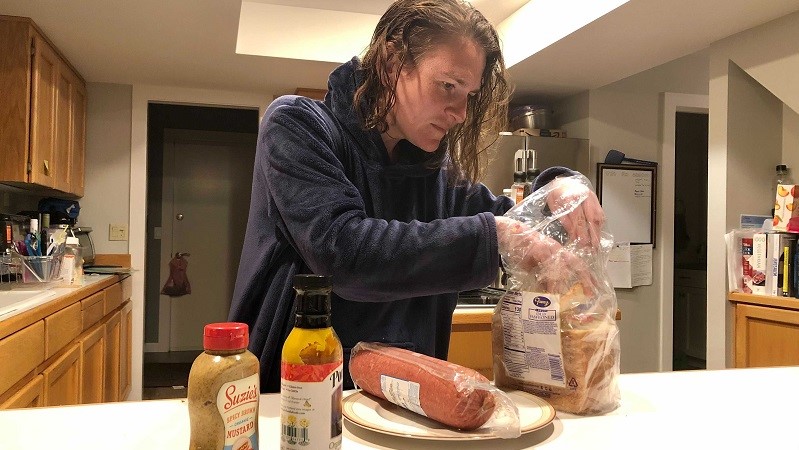Why is it always easier to jump to the negative and harder to keep focused on the positive? In my rabbinical school pastoral counseling class, we had many conversations about what is referred to as the “feedback sandwich.” You share something nice (the bread part), then give the troublesome news (the meat part), and then add the second piece of bread with something kind again. It can make it easier to share something difficult, but I tend to be more direct. As someone who always wants to just say what she means, the feedback sandwich can trip me up. For example, what if there simply is no bright side? Rom-coms have spoiled us with impossibly happy endings, but we know that isn’t really how life always works.

The Torah struggles with this notion as well. In fact, when reading Torah, there are rules about how you can end an aliyah, and the section of verses can’t end in the middle of something terrible happening. Why? Perhaps it is because when we are left in that dark space, our minds wander in the negativity and imagine the worst possible outcomes . . . even when we already know how the story goes!
Our Torah portion this week, Tzav, exhibits this for us. Parshat Tzav begins with the instructions for the priests with regard to the different sacrifices. After discussing the need for the eternal flame, the text continues by teaching the prohibition against eating milk and meat together, and then offers up a final review of the sanctification ceremony of the priests and their roles.
The end of the parshah foreshadows what will happen next. It warns that if you don’t follow the rules, you will die. And in the very next section of text, Aaron’s sons break the rules, make their own rules, and end up paying with their lives. But the verses just prior to that moment seem to soften the blow by explaining “And Aaron and his sons did all the things that the Lord had commanded through Moses.”
People are seldom purely good or purely evil. The same people who are kind or humble or philanthropic can also make mistakes, though some of those mistakes may have more dire consequences than others. The feedback sandwich isn’t just a way of sharing bad news or adding variety to a narrative. It’s also a reminder that individual actions don’t have to define us; rather, we are the sum of everything we do.



